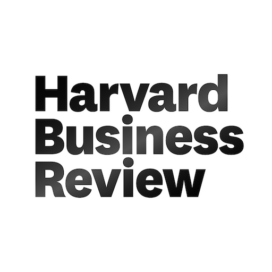Ethical Leadership: Facing the Challenges on the Front Lines
Published: May 27, 2015 / Author: Maureen Mohlenkamp

Each year, the Notre Dame Deloitte Center for Ethical Leadership brings together corporate leaders, including ethics, compliance and human resources professionals, to discuss practical ways to improve the effectiveness of ethics programs and align them with an organization’s broader growth strategies. Adam Kronk, the Center’s program director, and Maureen Mohlenkamp, a principal at Deloitte LLP who specializes in compliance and ethics, discuss takeaways from the fourth annual forum, as well as ethics program challenges with ROI measurement and multigenerational workforces.
Maureen Mohlenkamp: What were some of the notable ideas that emerged from this year’s forum?
Adam Kronk: This year’s theme was “breakthrough behaviors,” and the discussions were based on ways that successful organizations have generated ethical leadership through innovative means. We grouped breakthroughs into three categories: process, purpose and people.
One major takeaway was the power of story. It highlights the distinction between two types of human memory, semantic and episodic. Semantic memory refers to general knowledge of the world—facts, ideas and concepts—that we pick up throughout our lives. This differs from episodic memory, which is much more powerful and is essentially a catalogue of experiences and specific events. We discussed during the forum how organizations can harness the episodic memories of employees in their ethical training programs, using story telling as a way to signal organizational values. These exercises tend to be most effective when they’re drawn from real-life examples, without the use of such tools as slide decks or bulleted slogans hung on a wall. In other words, what is most effective is simply the telling and retelling of value-based stories throughout the organization.
Another key theme was the crucial role of frequent, accurate feedback. When people think of feedback or performance reviews at an organization, I don’t know that they are always thinking of the relationship to ethical behavior. However, some organizations find that the more they can encourage feedback in both directions—up and down the chain—the more it yields positive results in their culture. These organizations take feedback and one’s openness to it very seriously, and they recruit for and promote employees who have a mindset that is open to feedback and growth.
Maureen Mohlenkamp: What did participants describe as their toughest challenges involving ethics programs?
Adam Kronk: Measurement is probably the most common challenge that we hear. A perennial question is demonstrating ROI in ethics and compliance programs. Let’s say an executive is trying to execute a robust ethics and compliance program, and needs more money to make it happen. For the organization, the question is, “How do we know that it’s making a difference?” ROI is hard to measure for a couple reasons: it’s not easy to measure a lack of wrongdoing, and it’s not obvious what success looks like for some of the outcomes. For example, is higher or lower call volume on your integrity hotline more desirable?
Another challenge is connecting ethics and compliance programs to performance and corporate strategy. The more closely these are linked, the higher the odds of having demonstrable ROI. It comes down to two things: resisting the pressure of short-term performance measures and tying incentives to long-term value. There is no easy way to do this, but focusing on what is truly in the best interest of the customers, the clients and/or the stakeholders is a good place to start.
Maureen Mohlenkamp: What is your view of the relationship between ethics and compliance?
Adam Kronk: From a psychological perspective, compliance is avoiding a behavior for fear of punishment or out of a desire to please others. Research shows this to be a much weaker motivator than aspiring to a set of ethics or values, in which the individual is emulating a role model or leader. Following an ever-increasing list of rules can also diminish independence and proactive problem-solving, and end up creating more work for managers. Of course, there is a compliance component at every organization, but ethics is something else, something that cannot be perceived to be the responsibility of just one area, but should permeate all operations and decisions. One practice that is increasingly common is the designation of ethics ambassadors, people embedded within business units to help make sure that the performance of that area meets the organization’s ethical standards. This role is in addition to their normal responsibilities.
There is also a term, “malicious compliance,” which should be considered. This refers to a culture so bogged down in rules that morale suffers and people will do exactly what you ask them, but nothing more or better. They likely are going to think only for themselves and not the broader organization, and that is a path to failure.
Maureen Mohlenkamp: What role does an ethics program play in the recruitment and promotion process?
Adam Kronk: One of the ways that ethics is considered as part of the recruitment or promotion process is what I would call a negative screen. For example, someone might be up for promotion and be very good at their job. The tendency is to look in their file for any red flags or big missteps. If none is found, they may get the green light. But a more substantive screen than merely asking whether the individual did anything terrible could be added. You could ask, for example, whether they have not just the “what” column covered, but also the “how” column covered. In other words, “Is that person getting the results in the way that an organization wants its leaders to achieve results and is the person representing the organization’s values? And, further, is he or she proactively developing other employees to do the same?”
Maureen Mohlenkamp: How are views of the multigenerational workforce impacting ethics and compliance programs?
Adam Kronk: You can’t talk about millennials or multigenerational workforces without bringing up technology, which is having a multiplier effect on ethical issues. It raises the stakes for everyone. The more time people spend expressing themselves in these inherently more public and less private media, then the more pressing the concern that the appetite for privacy is lower. At this point, though, it seems futile to try to prevent employees from using social media. Time is better spent conveying what it means to represent one’s company and to try to harness the instinct for transparency in a positive way.
Studies are showing that younger workers have a desire to positively impact the world through their careers, regardless of the industry. And because there is an expectation among these employees that their company will add some larger value to the world, organizations have license to do that. Many millennials also have a strong desire for mentorship, which fits well with the way that people effectively learn. If younger generations have this appetite for mentorship, which is fertile ground for sharing stories about ethical decision-making, the mentoring relationship has potential for improving behavior.
Related Stories




